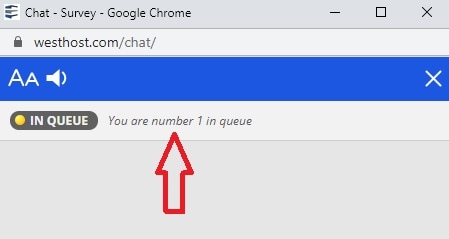Inside this Article
1. Plans and Pricing
Hostinger wins, thanks to its overall lower prices
Both these providers offer shared hosting plans with 3-tier pricing where WestHost has the pricier plans. While Hostinger’s best prices are available for the quadrennial term, WestHost’s are available for annual to triennial term. Renewal prices of both are more, with Hostinger’s being 1.2-2X and WestHost’s being 2.5-4X the lowest prices. WestHost’s WordPress plans are cheaper than Hostinger’s though the renewal prices of both are steeper (up to 2.5X and 2X for WestHost and Hostinger respectively). WestHost’s SSD VPS plans are pricier but have more resource allocations. Since Hostinger offers no dedicated servers, you’ll have to choose the managed or unmanaged dedicated servers of WestHost. WestHost domains cost more than Hostinger but offer free domain privacy (for the first year) and a free (for the first month) 1-page website. Hostinger Web Hosting
Plan NameStorageBandwidthFree SSLNumber of SitesPriceFree Months
More detailsA free domain name is included with some hosting plans from Hostinger
WestHost Web Hosting
Plan NameStorageBandwidthNumber of SitesPrice
More details2. Features
More plan variety and better resources win it for WestHost
You can host 1-unlimited websites with the shared plans of both these providers. With Hostinger’s plans, you’ll get CloudLinux OS, 30GB SSD-200GB SSD space, 100GB-unlimited bandwidth, 1-unlimited email accounts, custom-developed hPanel, LiteSpeed powered caching, a free SSL certificate, a free domain (with premium/business plans), daily/weekly data backups (plan-dependent), multiple PHP versions (5.2-7.4), 1-click installer, a website builder (free for 1 month), Cloudflare protected nameservers, and a custom cache manager. WestHost offers plans that include the Linux operating system, disk space ranging from 50GB to unlimited, bandwidth ranging from 1000GB to unlimited, as well as unlimited 10GB emails. Additionally, a free domain is provided (available with the annual term for the two higher plans), and a free SSL certificate is included (exclusive to the highest plan). You’ll benefit from features like the Softaculous auto-installer, a paid website builder, SEO tools, and SSH access. For the management and maintenance of your website, WestHost Site Manager will be your go-to tool. To compare both these providers, check the comparison table below.| Hostinger | WestHost | |
| Hosting Types | Shared hosting, WordPress hosting, email hosting, cloud hosting, and VPS | Shared hosting, WordPress hosting, email hosting, SSD VPS, and dedicated servers (including managed servers) |
| Free Domain | ✓(with premium/business plans) | ✓(with annual plans) |
| Free SSL Certificate | ✓ | ✓(highest plan only) |
| Disk Space | 20GB SSD-300GB SSD | 50GB- unlimited |
| Bandwidth | 100GB-unlimited | 1000GB-unlimited |
| Automatic Backups | Daily/Weekly (depending on your plan) | Can be scheduled |
| Control Panel | hPanel | cPanel |
| Email Accounts | 1-unlimited | Unlimited 10GB |
| Free CDN | × | ✓(with WordPress hosting) |
| Free Site Migration | ✓ | ✓(only for cPanel hosts within the 60-day introductory period) |
| Money-Back Guarantee | 30 days | 30 days |
3. Performance
Hostinger wins with great uptime and loading speeds
Both these providers host their servers in Tier-3 datacenters. WestHost’s solitary, fully redundant datacenter is located 30 minutes south of Salt Lake City, Utah. Hostinger’s datacenters are positioned across 7 different global regions. While WestHost uses Cloudflare CDN with its WordPress plans, Hostinger uses LiteSpeed cache plugins, SSDs, GZIP compression, and optional Cloudflare CDN.Hostinger offers a credit-backed 99.9% uptime guarantee. It performed extremely well when tested, details of which are available at our expert Hostinger review.
WestHost lagged behind a bit though, with no uptime guarantee despite promising excellent uptime. Check our expert WestHost review to know what went wrong.
Hostinger aces this round with great uptime and loading speeds.
4. Security
Hostinger’s extensive security outshines WestHost’s
Hostinger uses multiple security measures. These include SSL certificate, optional CDN, weekly/daily backups, RAID-10 for data redundancy, LVE containers (to enable account isolation), predictive and proactive server monitoring, Wanguard anti-DDoS protection, and Imunify360/Bitninja (WAF). WestHost offers a free and a paid Cloudflare plan along with 3 paid Sitelock malware detector plans. It also offers a paid managed security clean-up plan where its level 3 engineers will clean up your infected/compromised website, applications, or databases and minimize future risks. Due to its extensive and robust security measures, Hostinger wins this round.5. Support
Hostinger wins with its efficient and fast support
Hostinger offers 24/7 live chat support along with email and ticket support (for logged-in users). There’s a paid “Priority Support” too. I used Hostinger’s live chat support, which was quick and competent. For self-help, you can use multiple tutorials plus a knowledgebase and blog.
Hostinger Outshines WestHost Convincingly
Except for the features round where Hostinger loses by a whisker, it wins all the other rounds – from pricing and performance to security and support. So, I would recommend Hostinger for its affordable plans that offer value for money. If you’re still in a dilemma, knowing that Hostinger is at the top of our list of the best web hosting services may help.Comparison Table
Hostinger
WestHost
Plans and Pricing
Budget-friendly shared hosting and WordPress hosting plus email hosting, cloud hosting, and VPS
Pricier shared hosting and SSD VPS, cheaper WordPress hosting, and managed/unmanaged dedicated servers
Key Features
CloudLinux OS, 20GB SSD-300GB SSD space, 100GB-unlimited bandwidth, 1-unlimited email accounts, custom-developed hPanel, LiteSpeed powered caching, a free SSL certificate, a free domain (with premium/business plans), daily/weekly data backups (plan-dependent), multiple PHP versions (5.2-7.4), 1-click installer, a website builder (free for 1 month), Cloudflare protected nameservers, and a custom cache manager
Linux OS, 50GB-unlimited disk space, 1000GB-unlimited bandwidth, unlimited 10GB emails, free domain (with annual term for 2 higher plans), free SSL certificate (highest plan only), a paid website builder, SEO tools, SSH access, and Softaculous auto-installer
Performance
Credit-backed 99.9% uptime guarantee; uses LiteSpeed cache plugins, SSDs, GZIP compression, and optional Cloudflare CDN
No uptime guarantee; uses Cloudflare CDN (with WordPress plans)
Security
SSL certificate, optional CDN, weekly/daily backups, RAID-10 for data redundancy, LVE containers (to enable account isolation), predictive and proactive server monitoring, Wanguard anti-DDoS protection, and Imunify360/Bitninja (WAF)
Free and a paid Cloudflare plan, 3 paid Sitelock malware detector plans, and a paid managed security clean-up plan
Support
24/7 live chat, email, ticket support, and paid Priority Support; knowledgebase, blog, and tutorials for self-help
24/7 chat plus phone, email, an online contact form, and support tickets (for logged-in users); blog, FAQ, quick-start guides and tutorials, and knowledgebase for self-help








![How To Start a Clothing Store Online: A 6-Step Guide [2024]](https://dt2sdf0db8zob.cloudfront.net/wp-content/uploads/2024/06/How-To-Start-a-Clothing-Store-Online-img-02-e1718982195142-850x485.png)






![How To Start a Food Blog in 5 Easy Steps [2024 Guide]](https://dt2sdf0db8zob.cloudfront.net/wp-content/uploads/2024/05/How-to-Start-A-Food-Blog-in-5-Easy-Steps-CurrentYear-Guide-e1715367475336-850x487.png)


